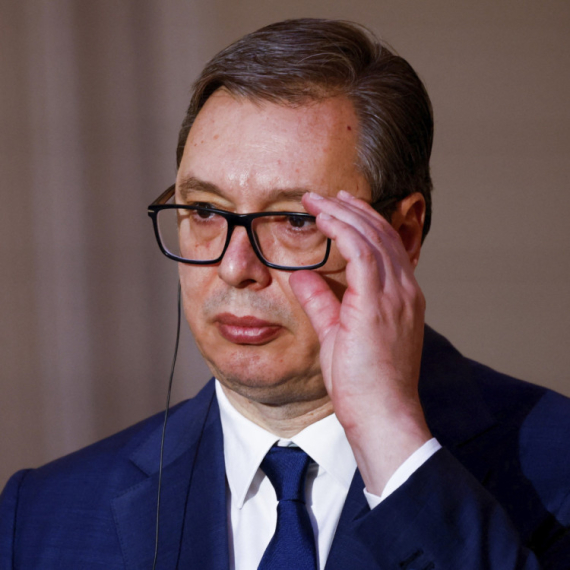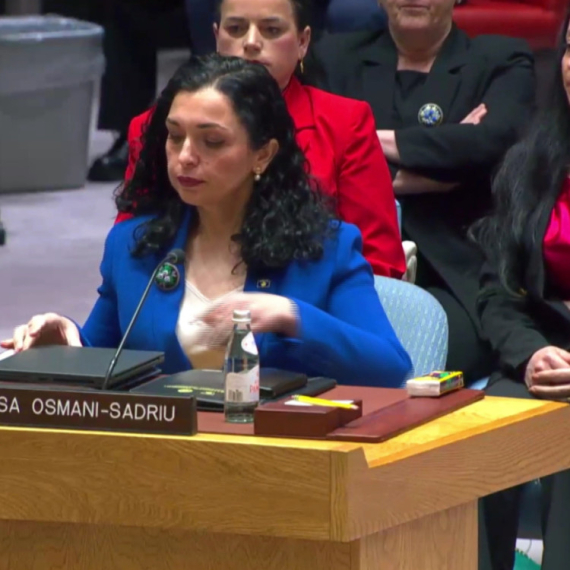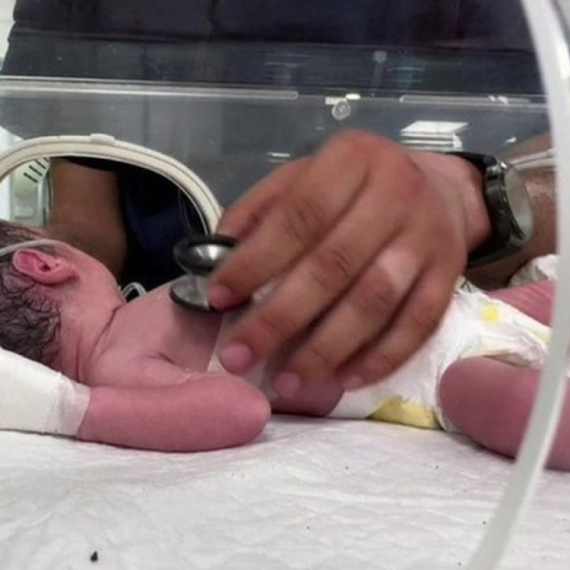China executes more Japanese drug traffickers
China on Friday executed three convicted Japanese drug traffickers, report says.
Friday, 09.04.2010.
09:48

China on Friday executed three convicted Japanese drug traffickers, report says. This comes three days after it executed the first Japanese citizen since the two nations normalized diplomatic ties in 1972. China executes more Japanese drug traffickers The three executions were carried out in the north-eastern cities of Dalian and Shenyang after approval by the Supreme People's Court, the official Xinhua news agency quoted a court statement as saying. The agency named the three convicted drug smugglers as Teruo Takeda, 67; Hironori Ukai, 48; and Katsuo Mori, 67, but the method of execution was not released. Reports by Japanese media said relatives met the three men Thursday. Despite pleas for clemency, China also executed Japanese citizen Mitsunobu Akano Tuesday after he was convicted of attempting to smuggle methamphetamines from China to Japan. Takeda was convicted of buying about 5 kilograms of methamphetamines in June 2003 and "instructing another Japanese to take the drugs out of China," Xinhua said. Police arrested Takeda's accomplices at airports in Dalian and Shenyang as they attempted to smuggle the drug to Japan the following month, it quoted the court statement as saying. Ukai and a "Korean accomplice" were caught by police at an airport in Dalian in September 2003 when Ukai was found carrying about 1.5 kilograms of methamphetamines. Police arrested Mori trying to take 1.25 kilograms of the drug onto a flight from Shenyang to Japan in July 2003, and his Japanese accomplice was still at large, the court said. Japanese media said the cases were believed to be linked to the trafficking of high-quality methamphetamines produced in North Korea. Drug traffickers had started smuggling methamphetamines via China to Japan after the Japan Coast Guard increased patrols and checks on fishing boats, which were previously used to smuggle drugs directly from North Korea to Japan, the reports said. Akano was among 28 people arrested in north-eastern China in late 2006 along with other Japanese, Chinese, North Korean and South Korean citizens. The detained were suspected of smuggling drugs to Japan and selling methamphetamines in seven areas of China, Chinese media said. Friday's court statement said the three Japanese citizens executed had been "treated legally during their detention and trials." It said all suspects, "regardless of nationality," were treated equally. China's continued use of the death penalty for drug traffickers "helped deter and prevent such crimes," it said. Japan's Jiji Press reported that Justice Minister Keiko Chiba said at a news conference after the executions, "I believe many feel uncomfortable at the severe punishment and that there is concern the executions could negatively affect the ties between Japan and China. China should have taken such concerns into account." In December, China executed British man Akmal Shaikh for drug trafficking despite pleas for clemency from the British government and international rights groups in the first execution of a European national in China for 50 years. China has reported several other executions of foreigners convicted of drug trafficking. Most of them were citizens of other Asian countries, such as Myanmar and Taiwan. London-based Amnesty International last week appealed to China to make public its annual number of death sentences and executions, which remain a state secret. Amnesty said that China again executed more people than the rest of the world put together in 2009, adding that "evidence from previous years and a number of current sources indicates that the figure remains in the thousands." Last week, five Chinese citizens convicted of drug trafficking were executed in the south-eastern province of Fujian, Xinhua said.
China executes more Japanese drug traffickers
The three executions were carried out in the north-eastern cities of Dalian and Shenyang after approval by the Supreme People's Court, the official Xinhua news agency quoted a court statement as saying.The agency named the three convicted drug smugglers as Teruo Takeda, 67; Hironori Ukai, 48; and Katsuo Mori, 67, but the method of execution was not released.
Reports by Japanese media said relatives met the three men Thursday.
Despite pleas for clemency, China also executed Japanese citizen Mitsunobu Akano Tuesday after he was convicted of attempting to smuggle methamphetamines from China to Japan.
Takeda was convicted of buying about 5 kilograms of methamphetamines in June 2003 and "instructing another Japanese to take the drugs out of China," Xinhua said.
Police arrested Takeda's accomplices at airports in Dalian and Shenyang as they attempted to smuggle the drug to Japan the following month, it quoted the court statement as saying.
Ukai and a "Korean accomplice" were caught by police at an airport in Dalian in September 2003 when Ukai was found carrying about 1.5 kilograms of methamphetamines.
Police arrested Mori trying to take 1.25 kilograms of the drug onto a flight from Shenyang to Japan in July 2003, and his Japanese accomplice was still at large, the court said.
Japanese media said the cases were believed to be linked to the trafficking of high-quality methamphetamines produced in North Korea.
Drug traffickers had started smuggling methamphetamines via China to Japan after the Japan Coast Guard increased patrols and checks on fishing boats, which were previously used to smuggle drugs directly from North Korea to Japan, the reports said.
Akano was among 28 people arrested in north-eastern China in late 2006 along with other Japanese, Chinese, North Korean and South Korean citizens. The detained were suspected of smuggling drugs to Japan and selling methamphetamines in seven areas of China, Chinese media said.
Friday's court statement said the three Japanese citizens executed had been "treated legally during their detention and trials."
It said all suspects, "regardless of nationality," were treated equally. China's continued use of the death penalty for drug traffickers "helped deter and prevent such crimes," it said.
Japan's Jiji Press reported that Justice Minister Keiko Chiba said at a news conference after the executions, "I believe many feel uncomfortable at the severe punishment and that there is concern the executions could negatively affect the ties between Japan and China. China should have taken such concerns into account."
In December, China executed British man Akmal Shaikh for drug trafficking despite pleas for clemency from the British government and international rights groups in the first execution of a European national in China for 50 years.
China has reported several other executions of foreigners convicted of drug trafficking. Most of them were citizens of other Asian countries, such as Myanmar and Taiwan.
London-based Amnesty International last week appealed to China to make public its annual number of death sentences and executions, which remain a state secret.
Amnesty said that China again executed more people than the rest of the world put together in 2009, adding that "evidence from previous years and a number of current sources indicates that the figure remains in the thousands."
Last week, five Chinese citizens convicted of drug trafficking were executed in the south-eastern province of Fujian, Xinhua said.






































Komentari 5
Pogledaj komentare